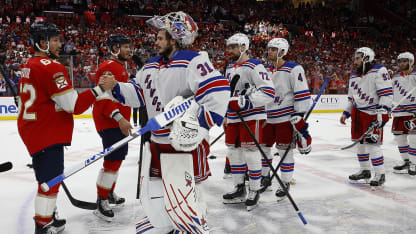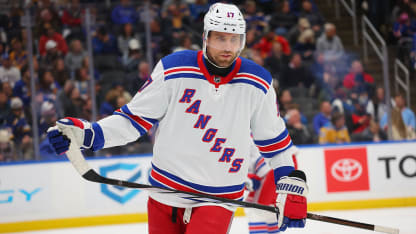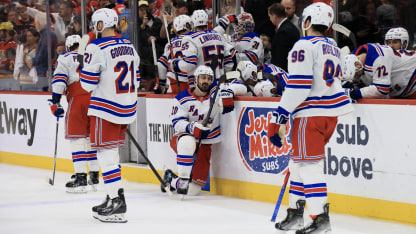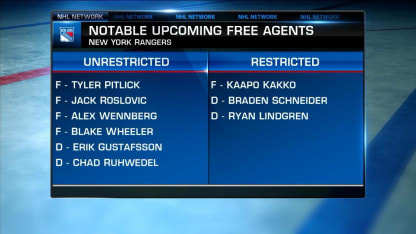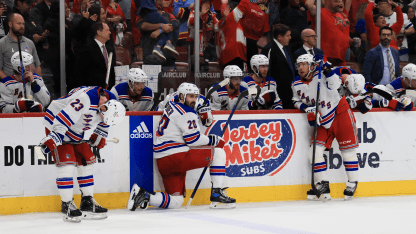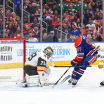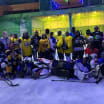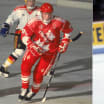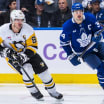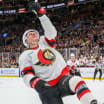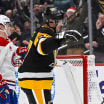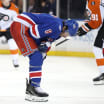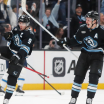GREENBURGH, N.Y. -- The New York Rangers had their final meetings before parting ways for the offseason Tuesday. Some players are staying around the area for a little bit before going home. Most are heading out. All are still feeling empty inside, disappointed and frustrated.
The Rangers won 65 games this season, including a franchise record 55 in the regular season. They won the Presidents' Trophy with 114 points, also a franchise record. They played into the Eastern Conference Final, to Game 6, two wins away from the Stanley Cup Final.
But that doesn't mean they feel they were a successful team or it was a successful season, not by the measuring stick they use.
"There's a goal at the beginning of every year and that's to win the Stanley Cup," Rangers coach Peter Laviolette said. "You work hard the entire year to build something to put yourself in a position to achieve that goal, reach that accomplishment. So by that standard, the season was not successful, it felt short of where we wanted to be."
As empty as they are after losing Game 6 to the Florida Panthers 2-1 on Saturday, their third one-goal loss of the series, the Rangers also parted ways Tuesday with confidence that they are close to where they want to be.
"There's a lot of teams that I've been on that you hope," captain Jacob Trouba said. "I think hope and belief are two different things, and I think this team had more of a belief than a hope. That's what you want. You want everyone in here believing we can win. I think we do. Come back and give it another crack next year. I think it's all here. I think it's in this room."
Some of the pieces in the room will change before next season. It won't be the same, but the Rangers are right to go into the offseason with optimism that they have the foundation they need and can build on it.
They do, however, still have questions to answer and areas to improve.
Here are five things to watch in the Rangers’ offseason.
1. Shesterkin's next contract
Igor Shesterkin has one year remaining on his four-year, $22.66 million contract ($5.667 million average annual value) that he signed on Aug. 9, 2021. He is eligible to sign a contract extension on July 1.
The Rangers have to get that done with Shesterkin at some point before next season begins to avoid questions about the goalie's future in New York.
Shesterkin wouldn't address his contract when asked about it Tuesday, saying instead, "I don't speak English." He speaks English, so that's his way of saying no comment.
Rangers general manager Chris Drury is expected to address the media Thursday or Friday. He likely will be asked about getting Shesterkin's next contract done this summer. He likely won't say anything definitive either, but make no mistake, this is a priority for the Rangers.
